Recovering from Addiction
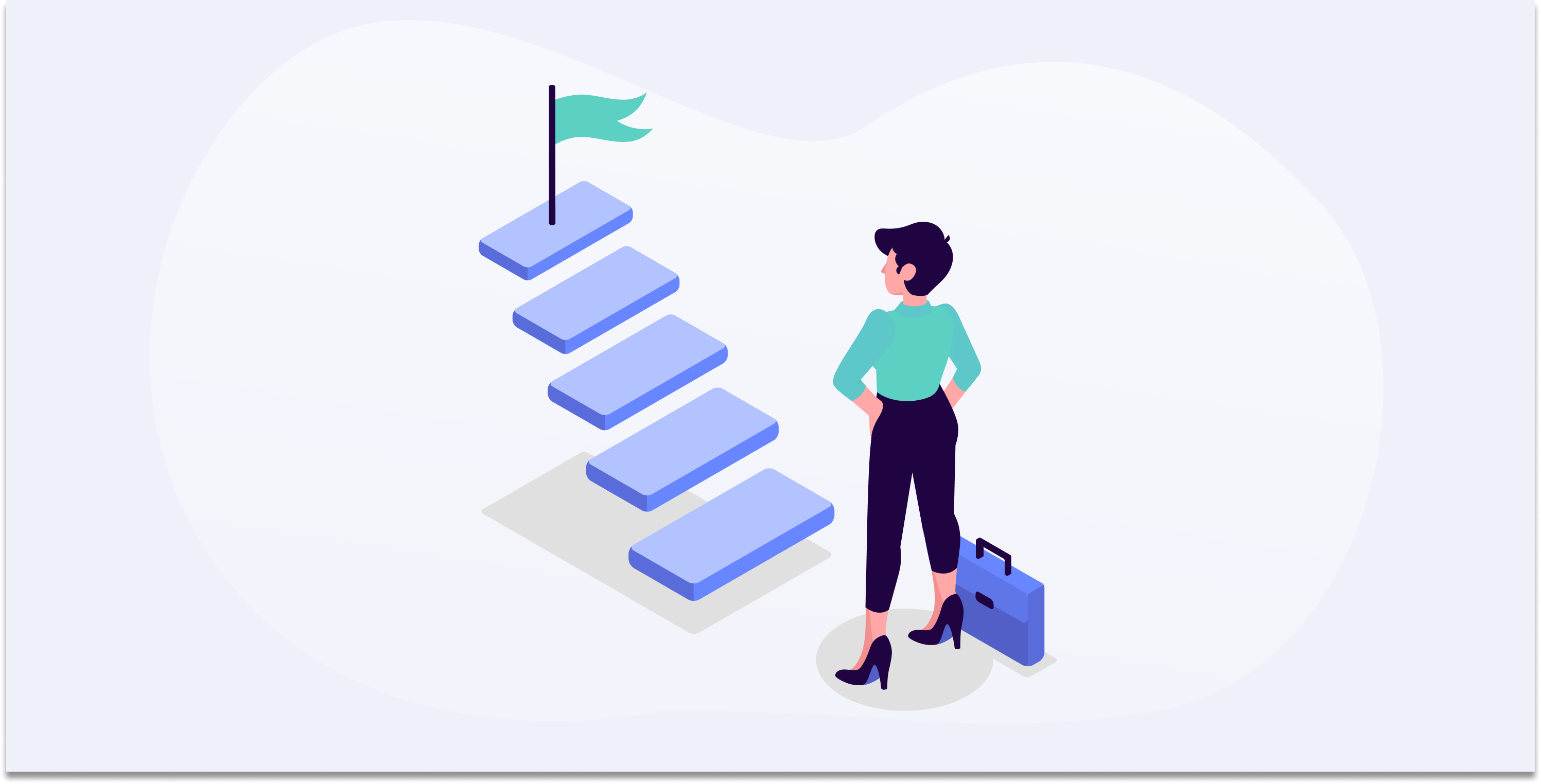
You can personalize the Recovering from Addiction resource by downloading it HERE and adding your own responses, or continue to view it below.
Welcome to your personal recovery plan! If you have ever had any issues with substance use, addictive behaviors, or have been diagnosed with a substance use disorder (SUD), this resource can be used as a guide to learn more about yourself, find new ways to support yourself, and continue to work toward a goal of recovery. This plan is not meant to be filled out in one sitting; take your time as you go through each section. It is an ongoing process, just like recovery itself! You can work on it in order, or start with sections that are most relevant for you. You also don’t need to fill it all out alone, your care team at Cerebral is here to help! It can be helpful to print it out and keep it somewhere safe and accessible once it’s complete. It’s your personal resource to take with you as you continue to build the life you want.
Step 1: My Motivation For Recovery
As we begin our recovery journey, whether for the first time or not, it’s important to reflect on our motivations. It could be that we are doing this for a loved one, for ourselves, for a future goal, for our pets, or for a healthier life…the options are endless. If this is not your first time starting your recovery journey, take some time to reflect on this question, “what is different about my recovery this time”? For example, “are there any changes in motivation, skills I’ve learned, or new supports I have?”
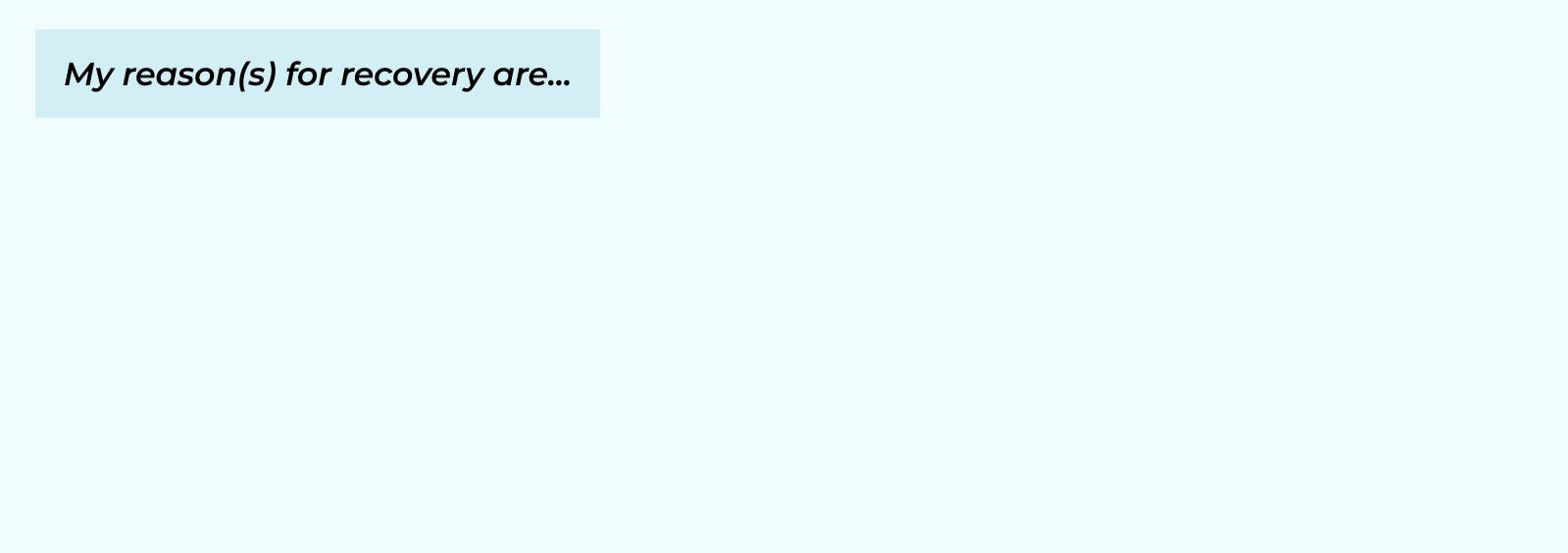
In this next exercise, reflect on the costs and benefits of continuing versus stopping (or reducing) the substance use or addictive behavior. Write in the substance or behavior that you are contemplating on the lines provided, then fill in each square based on the costs and benefits. For example, if you’re unhappy with the amount of alcohol you drink, you will write the benefits of continuing to drink in the first square (remember, there are always reasons that we continue certain behaviors), and then write the costs of continuing to drink in the second square, and so on.
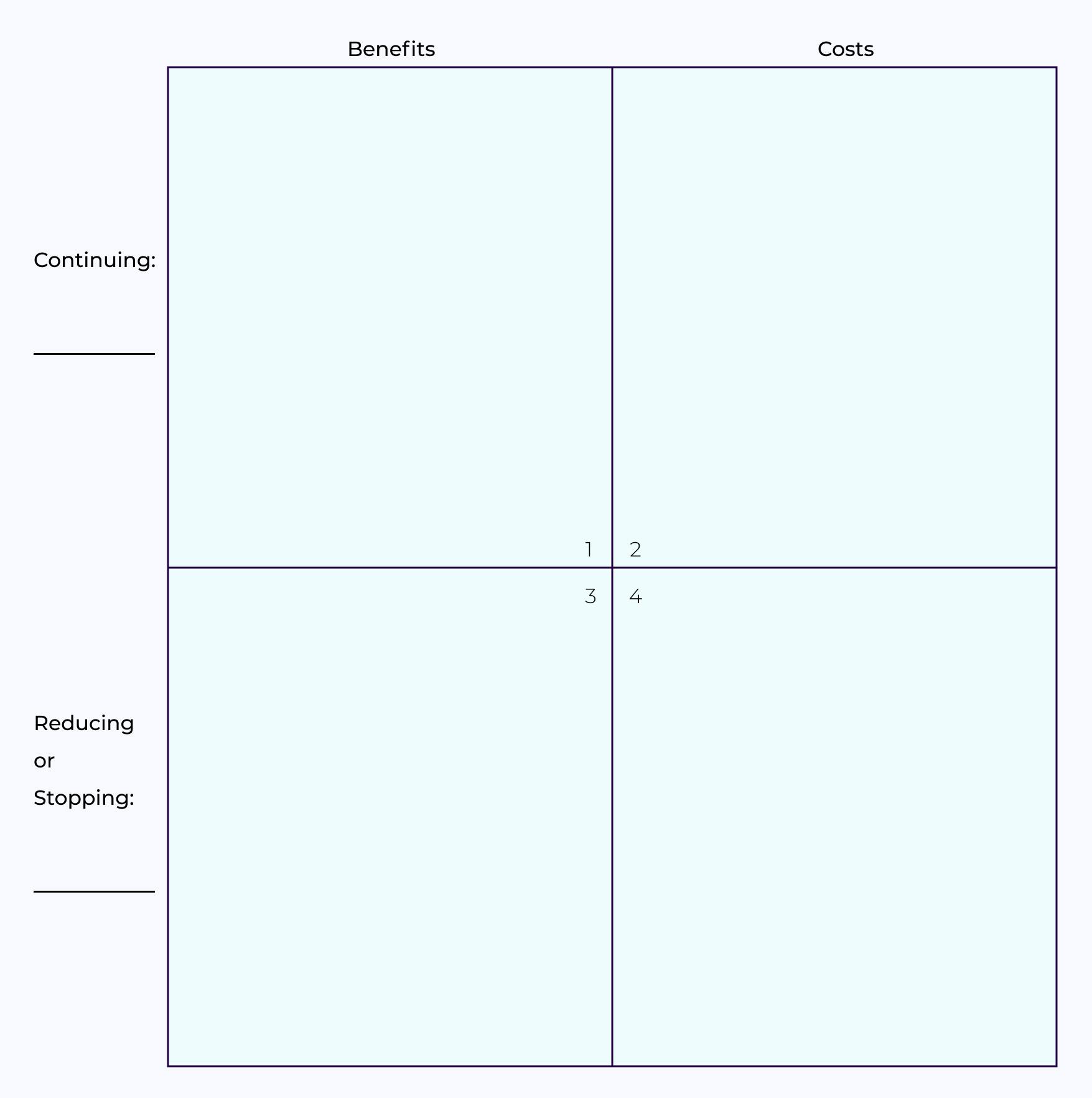
Step 2: My Support System
Having a strong support system is vital in recovery. Use the spaces below to identify people and resources that can support you in your recovery.
Support Groups
Though every person’s journey to recovery may be a little different, support groups provide a space to relate to others with similar experiences, and to provide both encouragement and accountability along the way. There are a variety of recovery programs out there, and are not “one size fits all”. It’s okay to try out different groups to find one that best fits your individual needs.
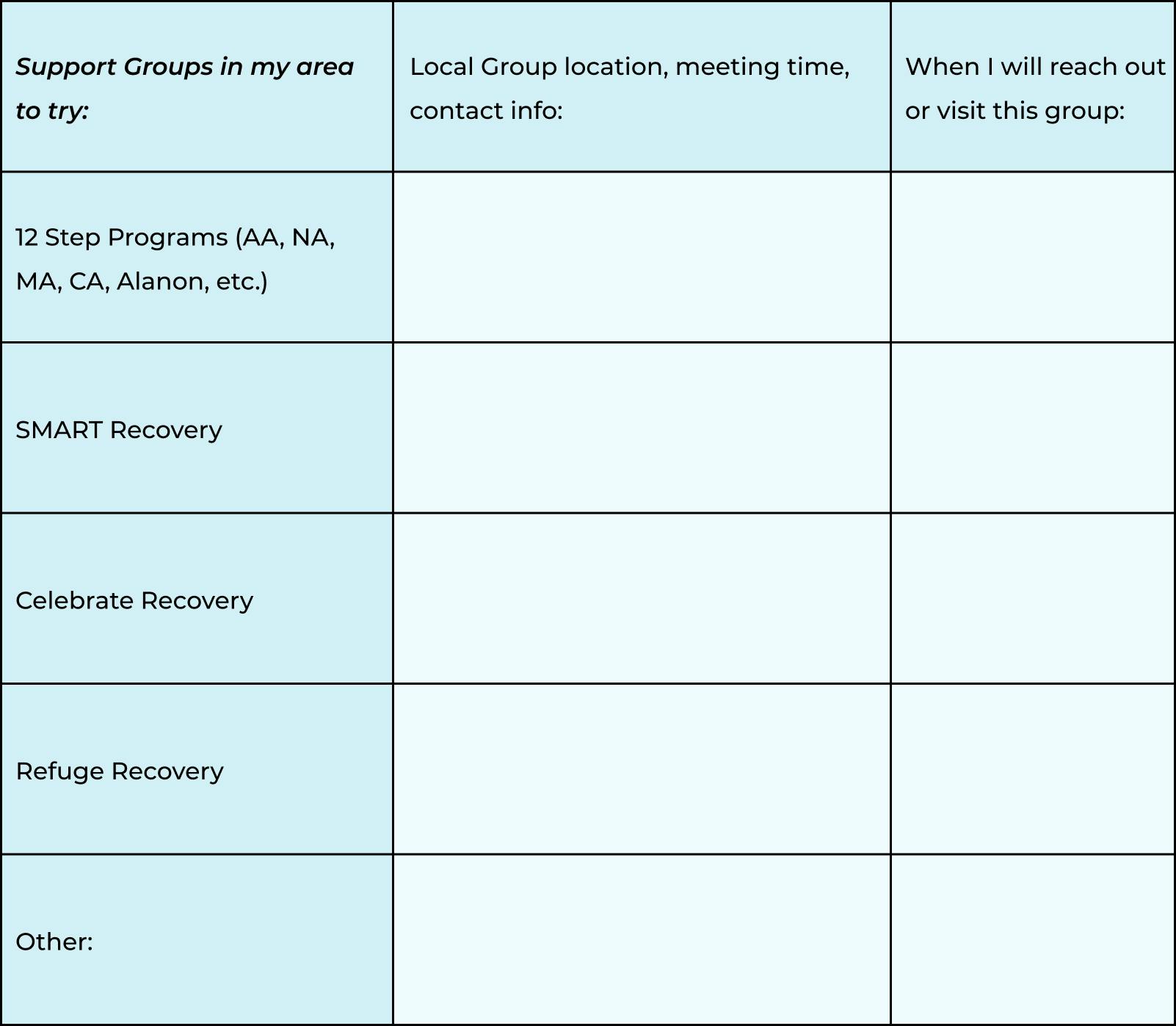
My “Go-To” People
Identify a list of “go-to” people that support your recovery and will provide non-judgmental support. Try to connect with them on a regular basis, both when you are having a tough time, and to celebrate successes.

Step 3: Coping with Triggers
During everyday life, it’s normal to experience external triggers (e.g. people, places, and things), and internal triggers (e.g. thoughts and emotions), that make us crave the substance or behavior that we’re trying to avoid. Creating a plan to manage these inevitable moments gives us the upper hand in fighting off cravings. Use the space below to note some of the things that trigger you, then brainstorm a plan to cope. If you don’t know a coping skill yet, that’s okay! You can always reach out to your care team for some ideas.
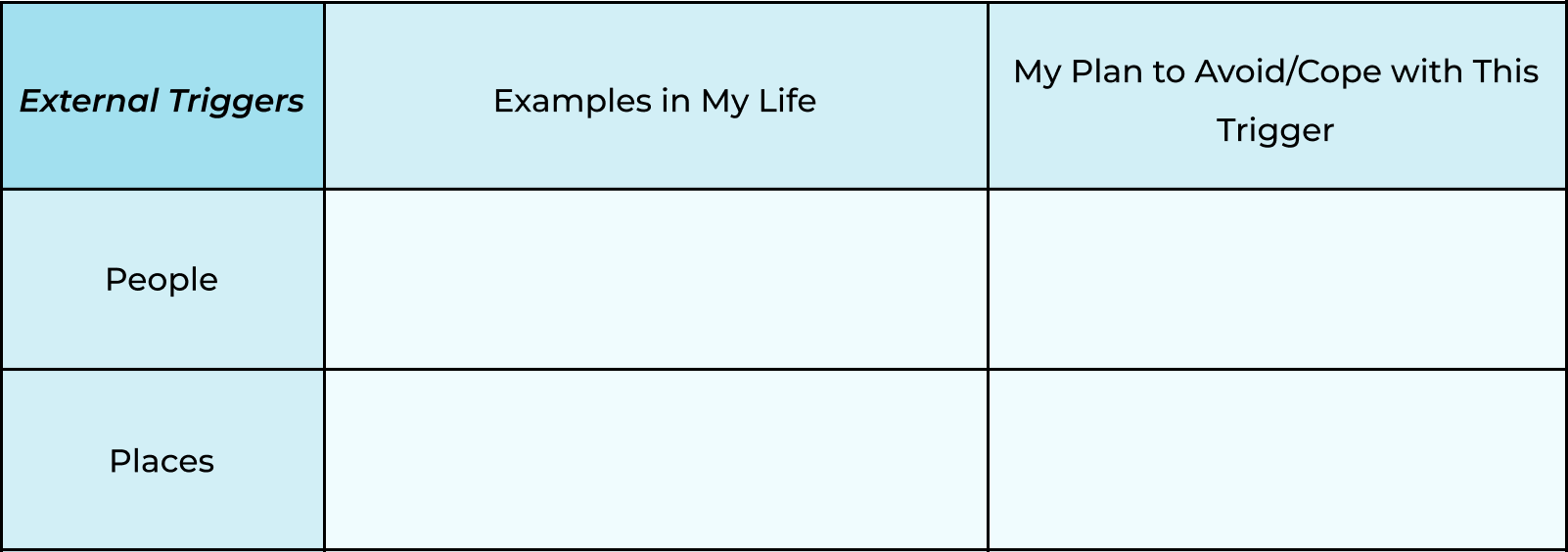
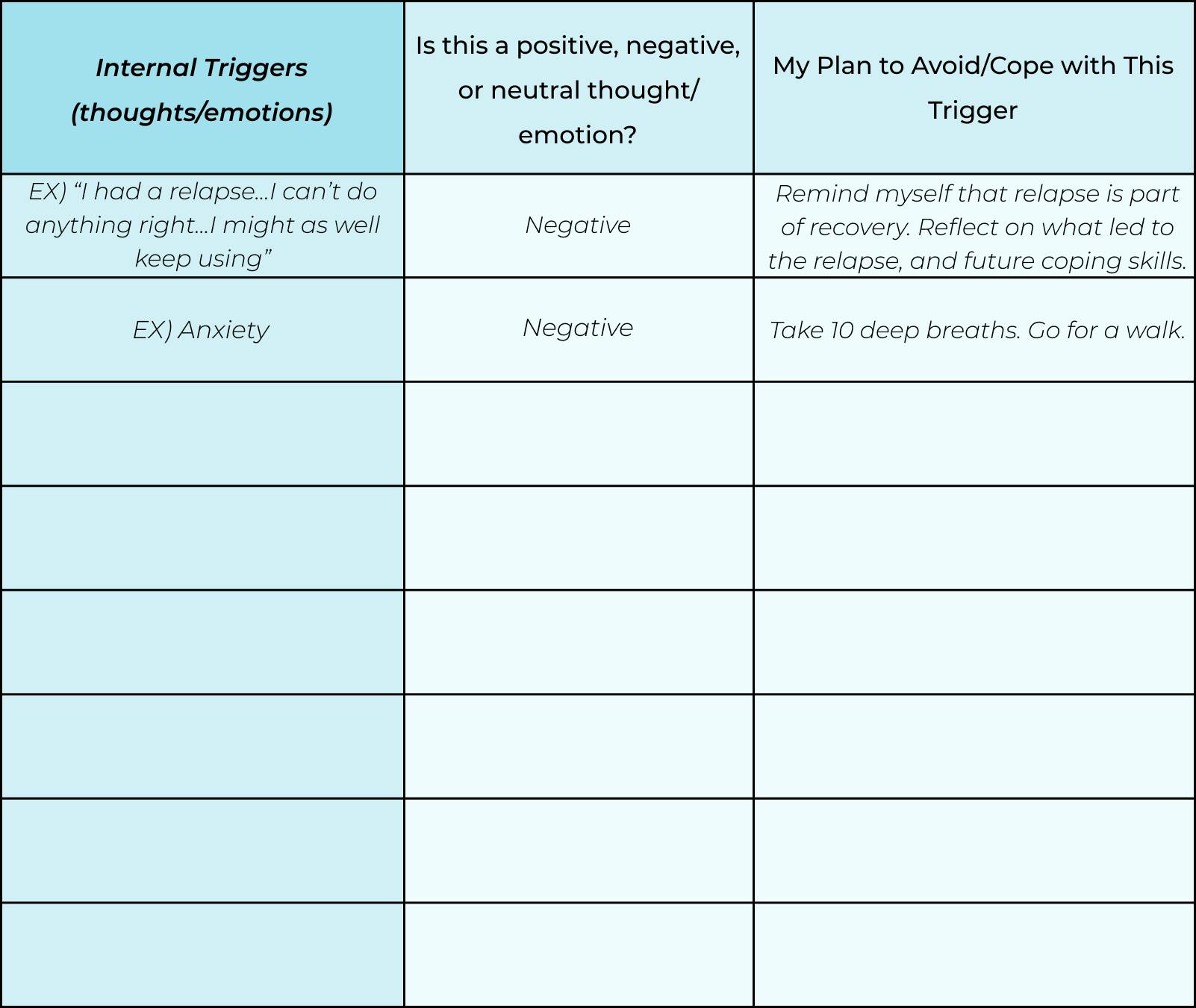
Step 4: Coping with Difficult Emotions
Substances and other addictive behaviors are often used to cope with difficult emotions. Even though they may help one cope in the moment, they often only have temporary effects, and tend to prolong the difficult emotions; over time this may lead to other concerns like worsening depression or explosive episodes of anger. Learning strategies to cope with difficult emotions is another essential part of the recovery process.
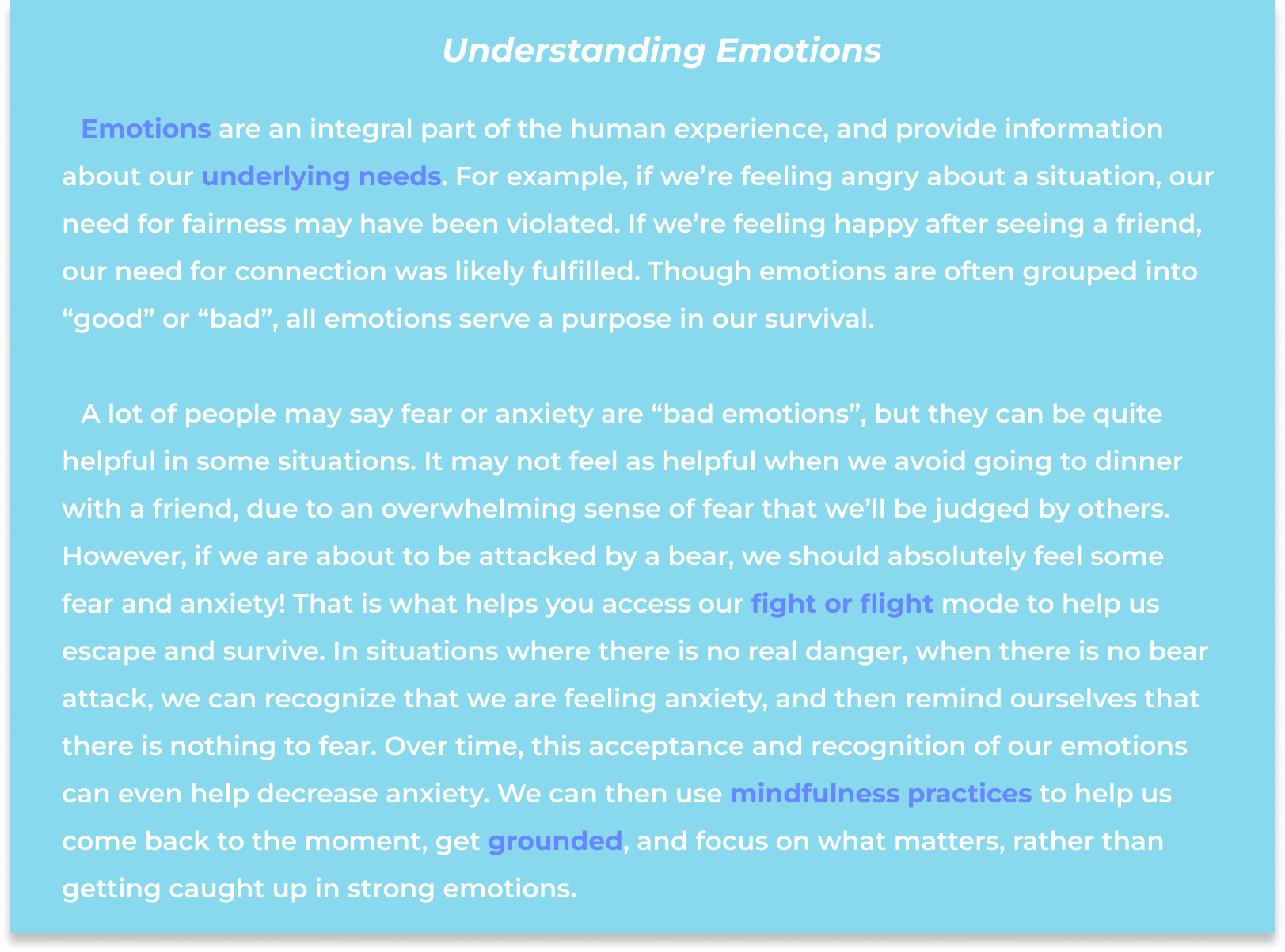
*Associated links:
Below are some additional resources that can help us to cope with difficult emotions. These can be useful in maintaining our recovery, and like any new skill, may take some time to explore, learn, and practice. We may find that a few of these will become our “favorite” or “go-to” skills, while others may be less helpful--this is something you get to decide!
Journaling
Journaling is a great way to externalize and process thoughts and emotions, and can be an important tool in recovery. Some find it helpful to journal without structure, writing whatever comes to mind (also known as “stream of consciousness”), while others find it helpful to have predetermined prompts like those in the resources below:
- Journaling: Anxiety
- Journaling: Self-Confidence
- Journaling: Self-Discovery
- Journaling: Perfectionism
- Journaling: Letting Go
- Journaling: Anger Management
- Journaling: Grief
- Journaling: Overcoming a Breakup
- Journaling: Survivor’s Guilt
- Positive Affirmations
Reach out for help - using support system and groups
Reaching out to your support system in times of need can be helpful in starting and maintaining recovery, navigating cravings, and getting back on track when relapse occurs. For example, if we’re needing support in managing emotions, we might call a friend, ask them to distract us, tell them how we feel, set up a lunch date, etc. Look back on your “Go-To People” and use the space below to brainstorm how to reach out:
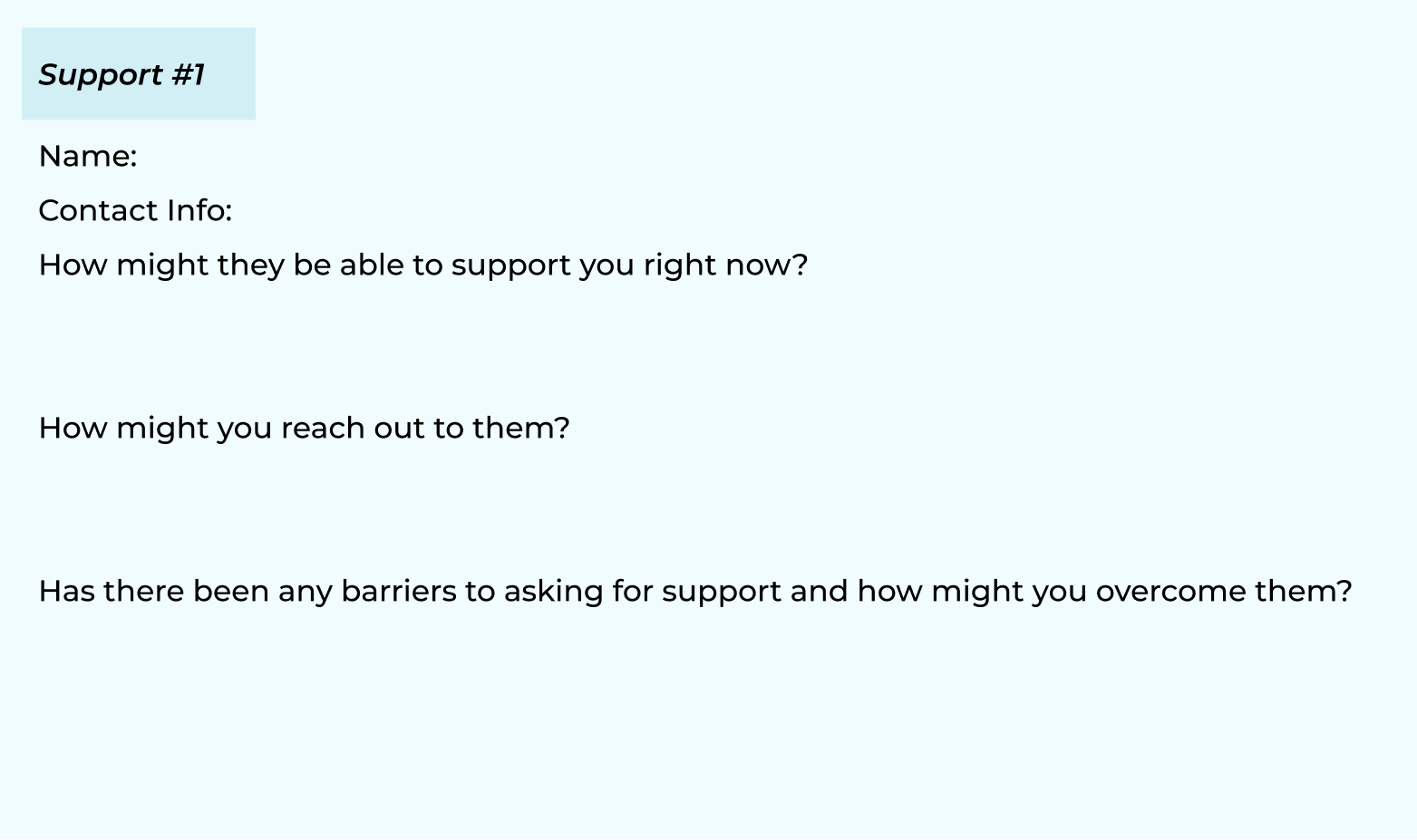
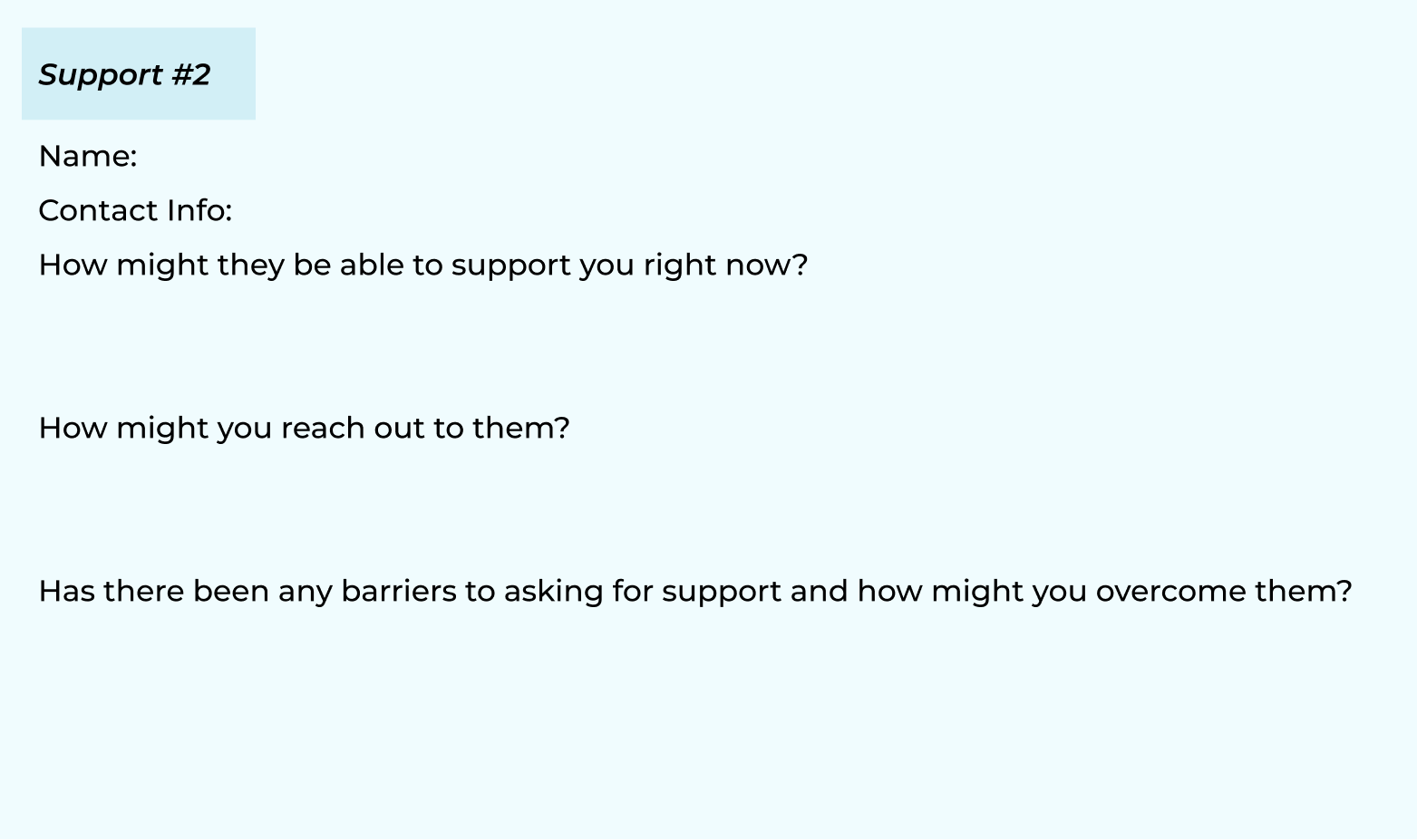
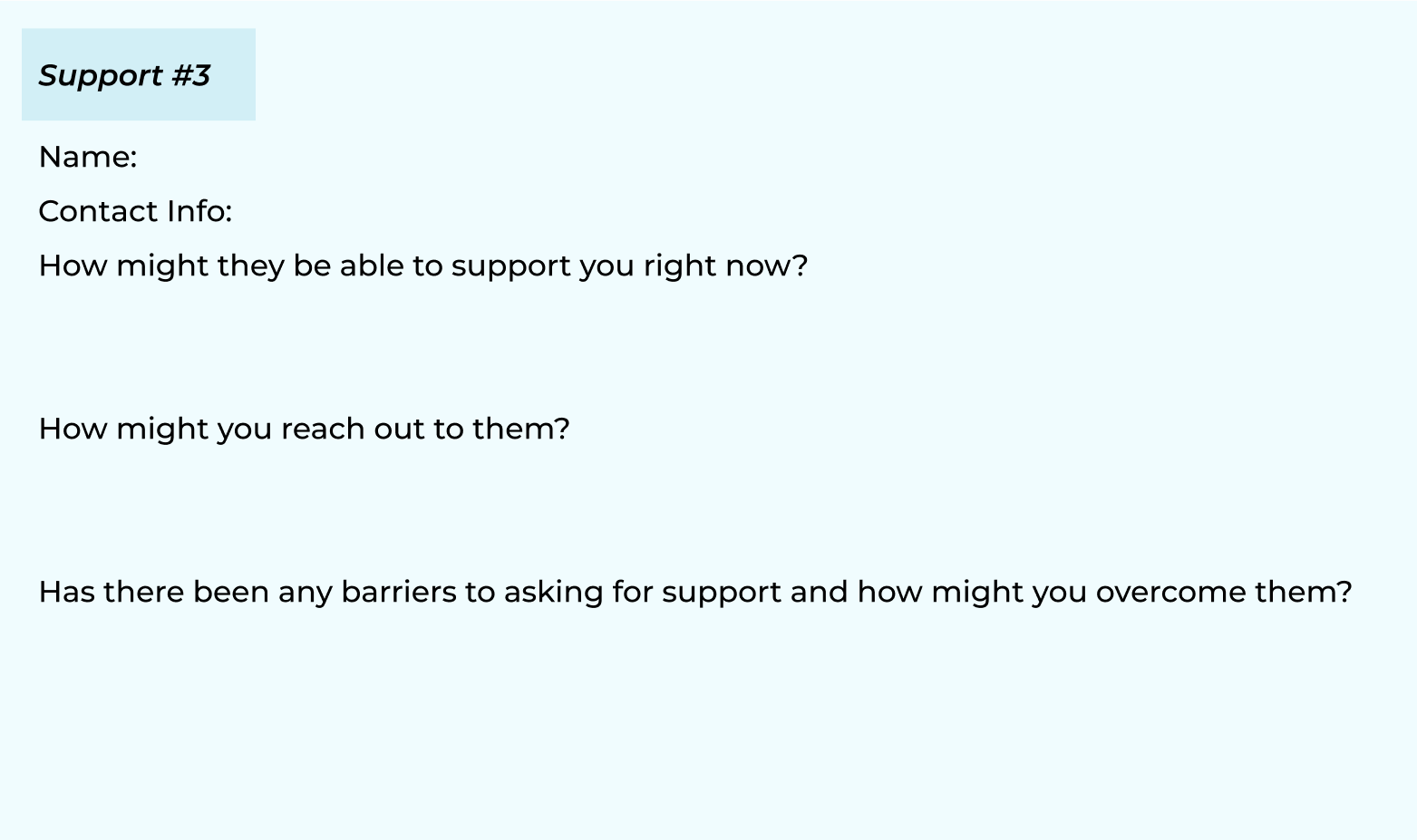
Mindfulness
Meditations:
Mindfulness Practices:
- Everyday Mindfulness Resource (learn how to bring a sense of mindfulness into everyday tasks)
- Wise Mind (DBT) Resource (learn how this Dialectical Behavior Therapy skill can aid in creating a more balanced way of thinking)
Self-Soothing and Relaxation
- Progressive Muscle Relaxation Resource (learn how to relax by releasing tension from various muscle groups)
- Self-Soothing Resource (learn how to soothe yourself when feeling overwhelmed)
- Self-Compassion Resource (learn how to use this evidence based practice to reduce self-critical talk and become your own ally in recovery)
- Deep Breathing Resource (learn how to use these simple exercises to calm the nervous system)
Step 5: A Balanced Lifestyle
For many people recovering from addiction, finding balance has been a struggle. Balance is important in living a healthy life, and it is especially important to take a look at the areas of our lives that are out of balance. Keeping a balanced life will help increase our resilience to relapse, and therefore help us maintain our recovery. Use the resources on the following page to explore the areas of your life that may be out of balance. Don’t hesitate to use your care team at Cerebral for support in exploring these challenges, and coming up with new goals and approaches to help you feel more balanced.
Balance Wheel
There are many forms of the Balance Wheel, and was originally created by motivational author, Paul J. Meyers. In any form, the wheel can be used to explore areas of our lives that may need more or less attention. Use the exercise below to explore and attain equilibrium on your road to recovery. For each section, rate your level of satisfaction with that area of your life by filing in pieces of that section. For example, if you are highly satisfied, fill in all 5 pieces of the section. If you are highly unsatisfied, don’t fill in any pieces of the section.
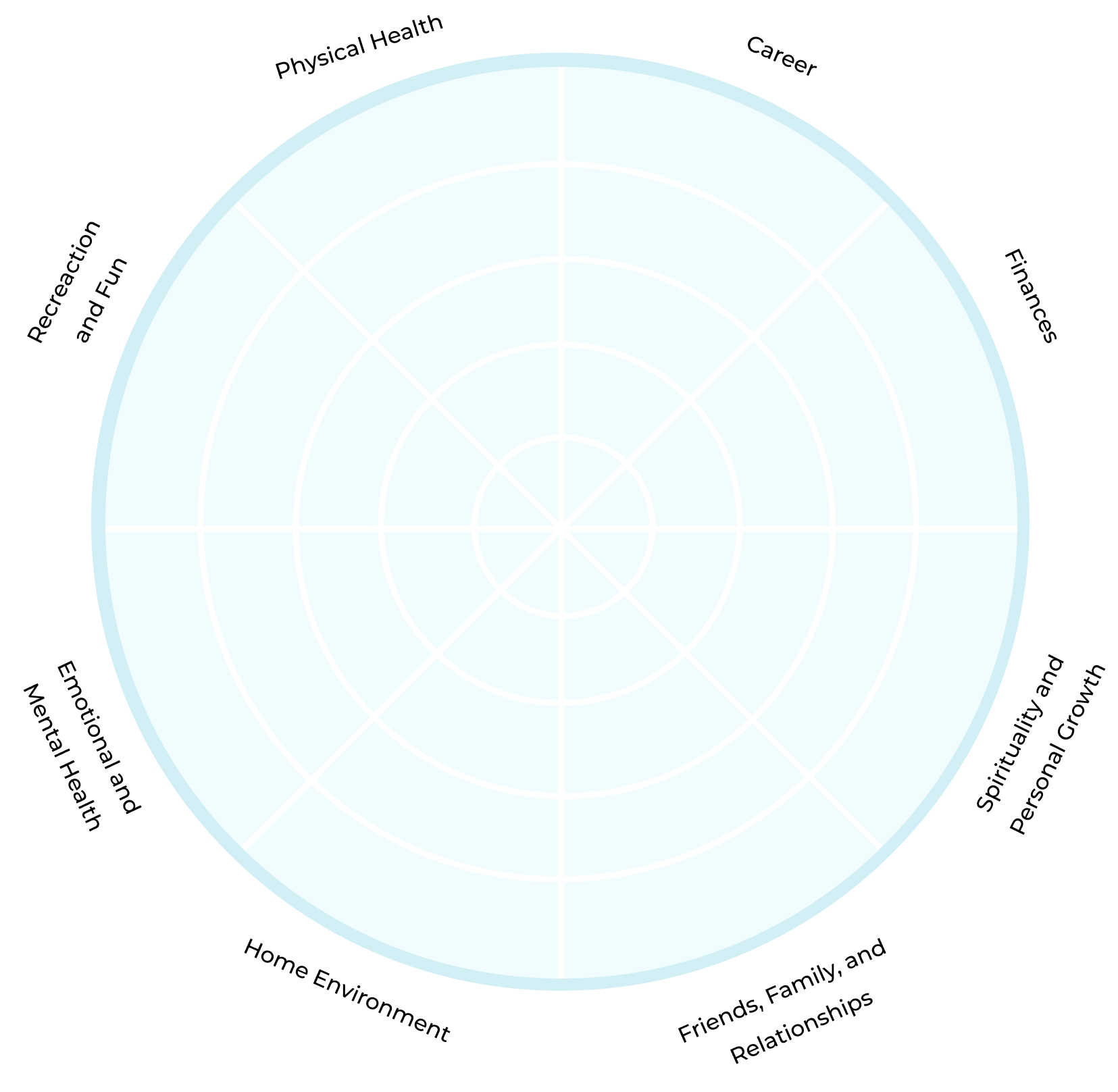
Balance Wheel Refection
For each section of the wheel (Physical Health; Career; Finances; Spirituality and Personal Growth; Friends, Family, and Relationships; Home Environment; Emotional and Mental Health; Recreation and Fun) use the following questions to further explore what balance looks like for you. You may also download the editable PDF version of this resource to type your answers for this section.
- What is going well in this area of my life?
- What isn't going as well in this area of my life?
- How might I find more balance in this area of my life?
Step 6: Maintenance: Keep Your Eye on the Prize
Remember your motivation and goals!
If you want, you can explore your Core Values and use them as reminders and motivation for your recovery. You can even write them down and post them around your living space to remind yourself of your motivation when you have a hard day.
Continue to use your coping skills, knowledge, and support systems to support you as needed.
Know that relapse happens and is in fact, a normal part of recovery.
In these moments, it can be helpful to have Self-Compassion, and reflect on what led us to relapse, with a sense of curiosity and non-judgement. Remember that we can get back on the road to recovery by using our resources and reaching out for support! Recovery is a very challenging and rewarding journey, and your care team at Cerebral is here to support you anyway we can!
Keep your completed “My Recovery Plan” resource in a safe and accessible place (make copies if needed), to be used anytime you need it!
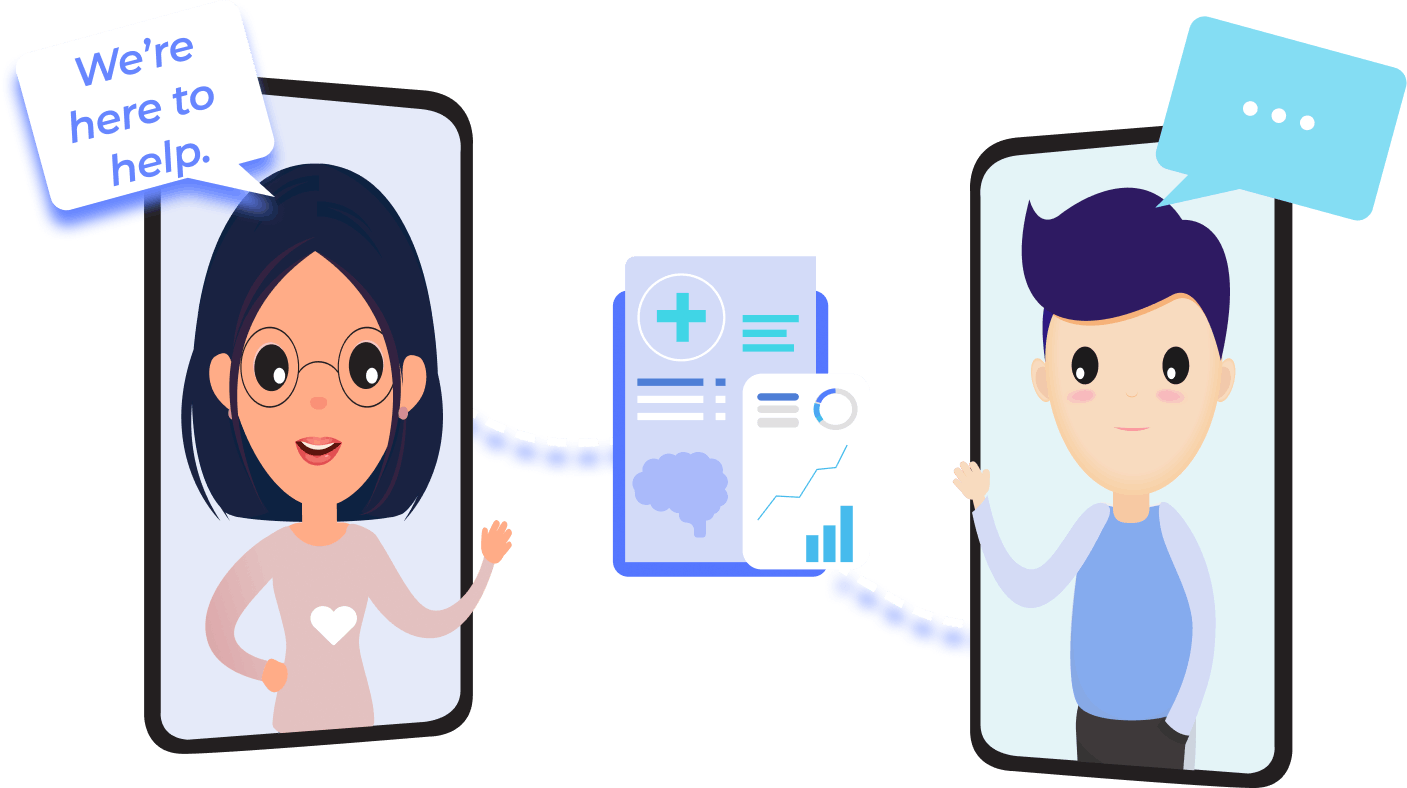
Call 911 if you’re having a
mental health emergency
Text Home to 741-741 if you're in emotional
distress and need immediate support
Call or text 988 Suicide &
Crisis Lifeline. Chat service
is available at 988lifeline.org.